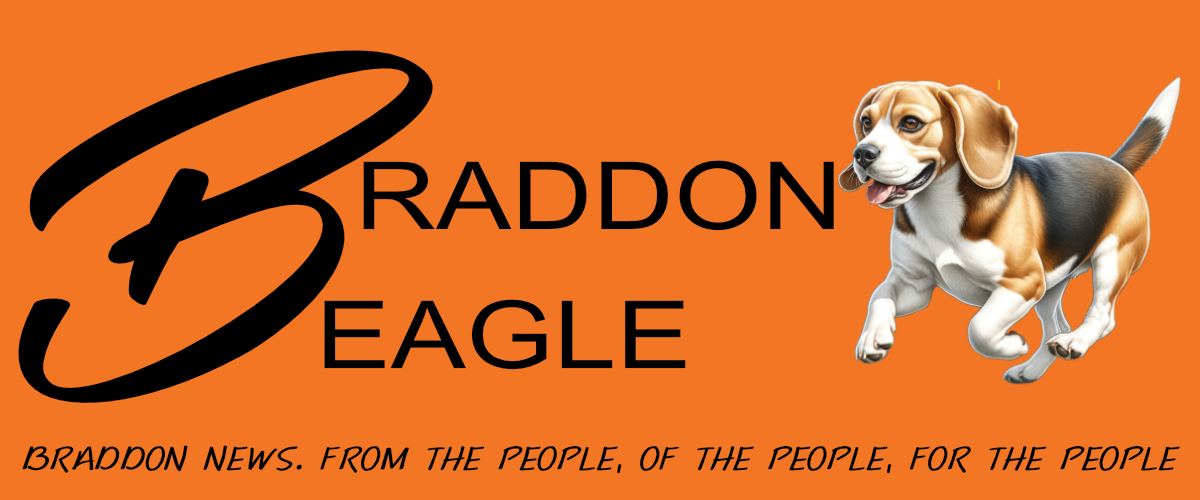by GEOFFREY CURTIS
As we enter the New Year with ‘The Braddon Beagle’ which was recently launched to serve the community, I would like to whet the appetite, here are a few snippets to contemplate.
My goal is to be informative, interesting, diverse, probing, and, when necessary, controversial. I aim to give readers insight into Local, State, National, and Global topics. All is well and good if it causes conversation around the kitchen table or over a cup of coffee—it’s all part of our social education. You may not agree with me yet, but future publications may resonate with some of you and encourage further discussion.
There has been quite a lot of academic research into the anxiety and suffering that some people have over Anthropogenic Climate Change. This upsets me because tens of thousands of adults and young children feel they have little or no recourse to save our precious planet. Instead, many worry, and feel isolated and abandoned. If you are one of these caring individuals, I want to reassure you that I understand your concerns.

For those interested in further information, I have included a couple of research articles on this subject. Equally important is for you to seek medical help, either through your general practitioner or someone who will listen to your worries. Above everything else, please do not suffer in silence. You can find valuable resources at:
https://www.thelancet.com/journals/lanplh/article/PIIS2542-5196(21)00278-3/fulltext
and
https://www.sciencedirect.com/science/article/pii/S0272494422001323
For those of you who have concerns about the overuse of plastics, from grocery bags to car seats, and where it can end up, look no further than our oceans as depicted. Since the 1950’s over 8 billion plastics have been produced of which 10-15 million tons have ended up in marine environments today.

Recently, the fifth Intergovernmental Negotiation Committee (INC-5) on plastic pollution took place in Busan, South Korea. The goal was to develop a mandatory treaty addressing plastic use. The intention was not to stop using plastic (impossible in today’s consumer society) but rather to reduce the amount, including determining where it can end up once discarded.
The obvious result from all of the discussion was the outcome. As one journalist put it,
‘the biggest producers of plastics hijacked the whole meeting tantamount to little being achieved’
This raises questions about who holds power over our planet from a human perspective.
You are invited to read more in-depth information on the ‘HDS Earth Negotiations Bulletin Summary Report’ at https://enb.iisd.org/
Endeavoring to show some positive outcomes, by looking after living organisms on our planet, can be difficult as many of us know. It occurred to me passing several of our vineyards in Braddon, why they were using pesticides in between the grape growing rows.
Many farmers, including one of our largest local horticultural producers, have been trialing ‘companion planting’. In simple terms, they deliberately plant one or more ‘sacrificial plants’ that repel insects (one method is through their aroma) from the main crop, such as strawberry or broccoli, thus saving the food source, the soil, and money spent on insecticide spray.
In recognition of the invisible heroes, thank you! These are the hidden people who walk the trails, walk the streets, walk the alleyways, and wander the countryside in their own time, picking up the litter that gets thrown out of vehicles or blown from a building. Councils cannot be expected to do all the litter pick up!
Lastly, there are two Tasmanian Environmentalists of the Year.

Congratulations to Sam Elsom, the founder of ‘Sea Forest’ which uses seaweed to reduce methane emissions from cows. This is a vital step forward in the food cycle, by lowering CO2 greenhouse gases.
And congratulations to Jim Everett—puralia meenewmatta— in recognition of his outstanding decades of environmental activism, and work to protect endangered species habitats.



Great article Geoff. Plastic is a curse on the planet, much like most humans. lol
Yep I’m with you on plastic Geoffrey. It is the real demon of fossil fuel, a thousand times worse than CO2. It is a waste product from the oil industry forced on us to the determent of ours and the environments health. It is the real planet killer.
As a farmer and soil nut I would like to point out that the cattle that are producing excess methane are being fed artificially in feed lots as part of corporate greed. The seaweed is a quick fix bandaid that offers a more complete nutrient intake negating some methane producing effects of artificially fed animals. Feed lots are bad for the animal, meat quality and environment and are done purely for ease and financial gain. Cattle and other herbivores feeding on grasses in a natural ecosystem actually help stabilise the methane in the atmosphere.
I’d encourage everyone concerned to check out Walter Jehene on Youtube, particularly https://www.youtube.com/watch?v=jwEToq05L2k, which considers the chemistry around the methane misconceptions probably driven by the fossil fuel industry.
As always, we humans and entrepreneurs are trying to find a single shot silver bullet, like seaweed, for a financial gain. Nature is far more complex than we want to think or believe and we need to return to natural farming methods and turn our backs on corporate mega food production and greed.
Support local food grown naturally.